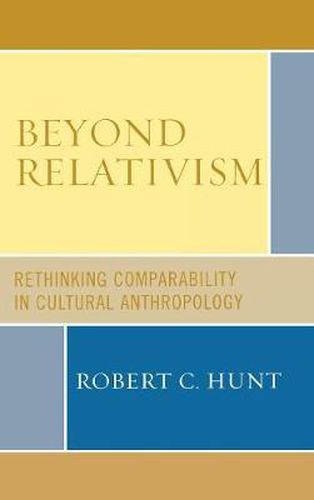Readings Newsletter
Become a Readings Member to make your shopping experience even easier.
Sign in or sign up for free!
You’re not far away from qualifying for FREE standard shipping within Australia
You’ve qualified for FREE standard shipping within Australia
The cart is loading…






Can elements of one culture-kinship relations, for example-be profitably compared to similar elements in other cultures? According to much anthropological thinking of recent decades, the answer is no. Cultures are closed systems, many people argue, and their internal elements can only be understood with respect to the culture as a whole. Cultural anthropologist Robert C. Hunt, drawing on his vast experience studying cultures around the world, here makes a powerful counter-argument that the various elements making up a culture not only can but must be compared across cultures if we are to understand them at all. Cultural comparison is not easy, and it cannot eliminate all ambiguity, but it is necessary if we are to develop a scientific understanding of how cultures work. This intriguing polemic will appeal to students of cultural anthropology, sociology, and ethnic studies, especially those interested in the theoretical grounding of these disciplines.
$9.00 standard shipping within Australia
FREE standard shipping within Australia for orders over $100.00
Express & International shipping calculated at checkout
Can elements of one culture-kinship relations, for example-be profitably compared to similar elements in other cultures? According to much anthropological thinking of recent decades, the answer is no. Cultures are closed systems, many people argue, and their internal elements can only be understood with respect to the culture as a whole. Cultural anthropologist Robert C. Hunt, drawing on his vast experience studying cultures around the world, here makes a powerful counter-argument that the various elements making up a culture not only can but must be compared across cultures if we are to understand them at all. Cultural comparison is not easy, and it cannot eliminate all ambiguity, but it is necessary if we are to develop a scientific understanding of how cultures work. This intriguing polemic will appeal to students of cultural anthropology, sociology, and ethnic studies, especially those interested in the theoretical grounding of these disciplines.